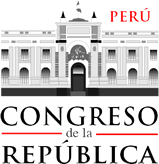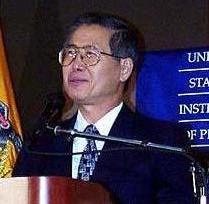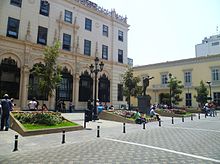Chapter 11:Accountability. Chapter 11 of the 1997 Constitution of Fiji is titled Accountability. Its 19 sections, divided into 5 parts, include a code of conduct expected of all government officers and employees, and establish a number of constitutional offices.
A national human rights institution (NHRI) is an independent state-based institution with the responsibility to broadly protect and promote human rights in a given country. The growth of such bodies has been encouraged by the Office of the United Nations High Commissioner for Human Rights (OHCHR), which has provided advisory and support services, and facilitated access for NHRIs to the United Nations (UN) treaty bodies and other committees. There are over one hundred such institutions, about two-thirds assessed by peer review as compliant with the United Nations standards set out in the Paris Principles. Compliance with the Principles is the basis for accreditation at the UN, which, uniquely for NHRIs, is not conducted directly by a UN body but by a sub-committee of the Global Alliance of National Human Rights Institutions (GANHRI) called the Sub-Committee on Accreditation. The secretariat to the review process is provided by the National Institutions and Regional Mechanisms Section of the OHCHR.


Martha Gladys Chávez Cossío de Ocampo is a Peruvian Fujimorist politician and lawyer. A historical and a prominent figure of Fujimorism, she has served in Congress for six-non consecutive terms from 1995 to 2006 and from 2011 to 2016, and since 2020 to finish the 2016–2021 that was interrupted by the dissolution of Congress. In the 2006 elections, she ran for the presidency, running on the Fujimorist Alliance for the Future ticket, but she lost, placing fourth in the election.

An ombudsman, ombud, ombuds, ombudswoman, ombudsperson or public advocate is an official who is usually appointed by the government or by parliament to investigate complaints and attempt to resolve them, usually through recommendations or mediation.

Fujimorism denotes the policies and the political ideology of former President of Peru Alberto Fujimori as well as the personality cult built around him, his policies and his family, especially Keiko Fujimori. The ideology is defined by authoritarianism, its support for neoliberal economics, opposition to communism, and socially and culturally conservative stances such as opposition to LGBT rights and school curriculums including gender equality or sex education. Opponents of Fujimorism are known as anti-Fujimorists.
A children's ombudsman, children's commissioner, youth commissioner, child advocate, children's commission, youth ombudsman or equivalent body is a public authority in various countries charged with the protection and promotion of the rights of children and young people, either in society at large, or in specific categories such as children in contact with the care system. The agencies usually have a substantial degree of independence from the executive, the term is often used differently from the original meaning of ombudsman, it is often an umbrella term, often used as a translation convention or national human rights institutions, dealing with individual complaints, intervening with other public authorities, conducting research, and – where their mandate permits them to engage in advocacy – generally promoting children's rights in public policy, law and practice. The first children's commissioner was established in Norway in 1981. The creation of such institutions has been promoted by the United Nations Committee on the Rights of the Child, and, from 1990 onwards, by the Council of Europe.
The Peruvian Constitutional Court or Constitutional Tribunal is an independent constitutional agency of Peru that was established in the 1993 Constitution of Peru that was created during the government of Alberto Fujimori. The court's members are nominated by the Congress of Peru; these nominations sometimes lack transparency and are based on political favors that nominees can provide to legislators. Since May 2022, the Constitutional Court has been used to provide institutional strength to Fujimorists in Congress, according to IDL-Reporteros.

The Spanish Ombudsman or Defender of the People(Spanish: Defensor del Pueblo) is the ombudsman of the Cortes Generales responsible for defending the fundamental rights and public liberties of citizens by supervising the activity of public administrations.

Since 2016, Peru has been plagued with political instability and a growing crisis, initially between the President, Pedro Pablo Kuczynski and Congress, led de facto by Keiko Fujimori. The crisis emerged in late 2016 and early 2017 as the polarization of Peruvian politics increased, as well as a growing schism between the executive and legislative branches of government. Fujimori and her Fujimorist supporters would use their control of Congress to obstruct the executive branch of successive governments, resulting with a period of political instability in Peru.

The 2019–2020 Peruvian constitutional crisis began when President Martín Vizcarra dissolved the Congress of Peru on 30 September 2019 considering a de facto denial of the vote of confidence. The majority of lawmakers, opponents and Fujimorists viewed Vizcarra's actions as a "coup" or "self-coup" while some compared the event to the 1992 Peruvian self-coup. Congress responded by declaring Vizcarra's presidency suspended and appointed Vice President Mercedes Aráoz as interim president. During the evening hours, the heads of the Peruvian Armed Forces shared a photograph beside Vizcarra in the Government Palace amidst the crisis, putting forward their support for him.

The impeachment process against Martín Vizcarra began in the Congress of Peru on 11 September 2020 when Congress initiated proceedings against Vizcarra on grounds of "moral incapacity", accusing him of influence peddling after audio recordings were released by an opposition legislator alleging that Vizcarra's political decisions were swayed by an obscure singer.

José Luis Elías Ávalos is a Peruvian lawyer and politician. He was a congressman of the Republic on two occasions during the parliamentary period 2000–2001 and the parliamentary period 2011–2016. He is set to return to Congress after a five-year absence in 2021.

CNM Audios is the journalistic name of a judicial scandal caused by the revelation of audio recordings of judges, with the most notable one being César Hinostroza, talking and accepting bribes. These judges were part of the National Council of Magistracy..
Karelim Lisbeth López Arredondo is a Peruvian businesswoman and lobbyist known for controversial interactions with the governments of Presidents of Peru Martín Vizcarra and Pedro Castillo.

Liz Patricia Benavides Vargas is a Peruvian lawyer. On June 20, 2022, she was elected as the Peruvian attorney general.

On 7 December 2022, President of Peru Pedro Castillo attempted to dissolve Congress in the face of imminent impeachment proceedings by the legislative body, immediately enacting a curfew, establishing an emergency government in which he would rule by decree and calling for a constituent assembly. Attorney General of Peru Patricia Benavides, in violation of Article 117 of the Constitution of Peru, had previously said that Castillo was the head of a criminal organization and called on Congress to remove him from office, with legislators then attempting a third impeachment of Castillo. Citing the actions of Congress obstructing many of his policies during his administration, Castillo argued that the legislative body served oligopolic businesses and that it had allied itself with the Constitutional Court to destroy the executive branch in an effort to create a "dictatorship of Congress". He also called for the immediate election of a constituent assembly with some calls for the creation of a constituent assembly existing since the 2020 Peruvian protests.

The Ayacucho massacre was a massacre perpetrated by the Peruvian Army on 15 December 2022 in Ayacucho, Peru during the 2022–2023 Peruvian protests, occurring one day after President Dina Boluarte granted the Peruvian Armed Forces expanded powers and the ability to respond to demonstrations. On that day, demonstrations took place in Ayacucho and the situation intensified when the military deployed helicopters to fire at protesters, who later tried to take over the city's airport, which was defended by the Peruvian Army and the National Police of Peru. Troops responded by firing live ammunition at protesters, resulting in ten dead and 61 injured; 90% of the injured had gunshot wounds while those killed were shot in the head or torso. Nine of the ten killed had wounds consistent with the ammunition used in the IMI Galil service rifle used by the army.

La Resistencia Dios, Patria y Familia, commonly known as La Resistencia, is a far-right neo-fascist militant organization that promotes Fujimorism in Peru.

Josué Manuel Gutiérrez Cóndor is a Peruvian lawyer and politician. He served as a member of the Congress of Peru from 2011 to 2016. In May 2023, he was appointed Ombudsman of Peru by Congress.

















